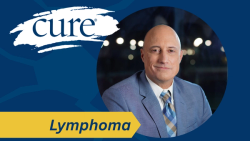Explaining KRAS Mutations For Patients With Colorectal Cancer
Dr. Marwan G. Fakih explains that KRAS mutations, found in 45% of patients with colorectal cancer, include the rare KRAS G12C mutation, leading to Lumakras approval.
According to the National Cancer Institute's website, KRAS is a gene that makes a protein involved in cell signaling pathways that regulate cell growth, maturation and death. The normal form of the gene is called wild-type KRAS, while mutated forms have been found in cancers such as non-small cell lung, colorectal and pancreatic cancer. These mutations can cause cancer cells to grow and spread throughout the body. Identifying whether a tumor has a wild-type or mutated KRAS gene is important for planning treatment strategies.
Advancements in precision medicine have led to new treatments aimed at KRAS mutations, including recent findings from the phase 3 CodeBreaK 300 trial. This trial supported the combination of Lumakras (sotorasib) and Vectibix (panitumumab) for patients with KRAS G12C-mutated metastatic colorectal cancer, according to Amgen, the drug’s manufacturer.
On Jan. 16, the FDA approved this combination therapy for adults who previously received fluoropyrimidine-, oxaliplatin- and irinotecan-based chemotherapy, according to Amgen. This approval was based on the phase 3 CodeBreaK 300 trial.
CURE spoke with Dr. Marwan G. Fakih, lead investigator and professor of medical oncology at City of Hope in Duarte, California, about the KRAS G12C mutation in colorectal cancer and the development of targeted therapies like Lumakras, the first KRAS inhibitor approved in the United States.
Transcript:
KRAS mutations are present in about 45% of patients [with colorectal cancer], and KRAS G12C is not the most common one. The KRAS G12C-[mutation] happens to be one of the rare KRAS mutations, occurring in 4% of patients. But this particular mutation is more druggable, [and] more amenable to inhibition. And it was one of those mutations where there has been early progress in identifying molecules that can bind to it and completely block it. And [Lumakras] was really the first of such agents to move into the clinic and show effectively responses in patients with KRAS G12C mutation. And this lies not just for colon cancer, but other tumor types, such as lung cancer, where it is also approved, but that is the significance of the KRAS G12C [mutation]. It's really has a configuration that allowed earlier-on development of drugs that can target it. And the field has moved forward since, and there are other agents now being evaluated in other KRAS mutations. And [Lumakras] is really the first to be approved as a KRAS inhibitor in the United States.
Transcript has been edited for clarity and conciseness.
For more news on cancer updates, research and education, don’t forget to subscribe to CURE®’s newsletters here.
Related Content
 What Does Minimal Residual Disease Mean?
What Does Minimal Residual Disease Mean?December 11th 2025
 Expert Shares Advice for Navigating a New Lung Cancer Diagnosis
Expert Shares Advice for Navigating a New Lung Cancer DiagnosisNovember 27th 2025
 FDA Approves Imfinzi Plus Chemo in GC/GEJC
FDA Approves Imfinzi Plus Chemo in GC/GEJCNovember 25th 2025
 Experts Discuss Next Steps in Perioperative Bladder Cancer Treatment
Experts Discuss Next Steps in Perioperative Bladder Cancer TreatmentNovember 11th 2025
 What Is the Difference Between a Clinical Trial and a Real-World Study?
What Is the Difference Between a Clinical Trial and a Real-World Study?September 27th 2025
View additional resources on CureToday.com












